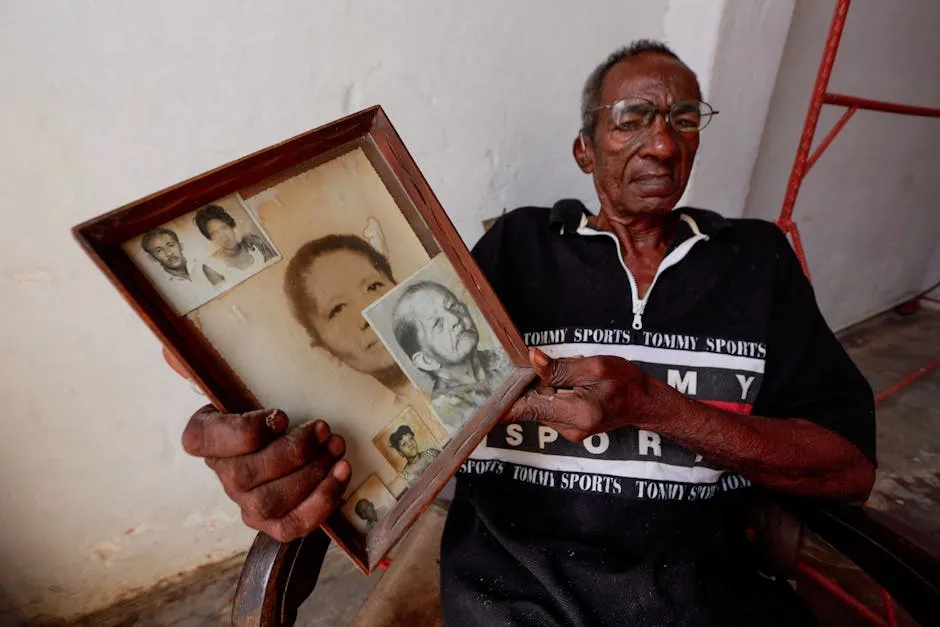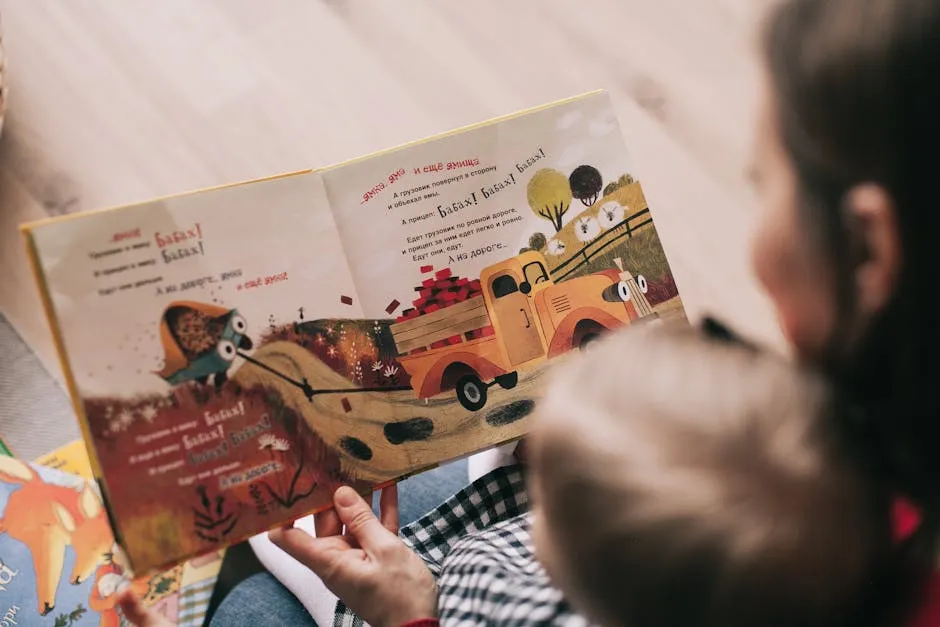
Why Does My Brother Always Change His Story So Much?
Introduction
Storytelling shapes our personal relationships. It helps us connect and understand one another. When a sibling frequently changes their narrative, it can be puzzling. You might find yourself wondering, “Why does my brother always change his story?” This behavior can create confusion and tension in relationships. Let’s unpack some reasons for this storytelling inconsistency.
For those looking to deepen their understanding of familial ties, consider picking up “The Sibling Effect: What the Bonds Among Brothers and Sisters Reveal About Us” by Jeffrey Kluger. It offers insights into how sibling relationships can impact our lives and the stories we tell.
Summary and Overview
In this section, we’ll explore the various factors that might lead to your brother’s changing stories. Understanding these reasons is vital for maintaining a healthy family dynamic. We’ll discuss emotional and psychological implications, including how these changes affect trust and communication. By recognizing these patterns, you can foster better understanding and connection within your family.
If you’re interested in exploring more about emotional connection, check out “The Power of Vulnerability” by Brené Brown. It dives deep into the importance of authenticity and connection.

Understanding Storytelling in Family Dynamics
The Role of Personal Narratives
Personal narratives are stories we tell about ourselves. They play a crucial role in shaping our identities. In family relationships, these narratives help cultivate bonds. They define how we see ourselves and each other. When siblings share experiences, they create a sense of belonging. This shared storytelling strengthens family ties and fosters understanding. Personal identity often hinges on these narratives, influencing our connections. When one sibling alters their story, it can shift the family dynamic. This shift may lead to confusion or even resentment. Understanding these personal narratives is essential for nurturing healthy relationships.
To enhance those family bonds, consider investing in Catan. It’s a fun way to foster teamwork and communication while enjoying a good laugh together.

The Psychological Implications of Changing Stories
Changing stories often stem from psychological factors. Cognitive dissonance arises when our beliefs clash with our actions. This discomfort can lead siblings to modify their narratives. Memory plays a significant role here too. Our recollections are not always accurate. Studies show that memory can be unreliable. In fact, research indicates that around 30% of people misremember events. This inconsistency can cause siblings to alter their tales. Self-preservation is another factor. When faced with guilt or shame, one might reshape their narrative to feel better. Recognizing these psychological implications can enhance understanding in family dynamics.
Common Reasons for Changing Stories
1. Desire for Acceptance and Approval
The need for family approval drives many to change their stories. Siblings often seek validation from each other. This quest for acceptance can lead to narrative alterations. Sibling rivalry may exacerbate this behavior. When competition exists, one may feel pressured to impress. The desire to be seen in a favorable light can influence storytelling. This need for social acceptance is powerful. Ultimately, it can create tension and misunderstandings within the family. Understanding this dynamic is crucial for fostering healthier relationships. By addressing these issues, families can promote openness and authenticity.
For a fun way to engage your family and promote acceptance, why not try out Ticket to Ride? It’s a classic game that brings everyone together and builds camaraderie.

2. Fear of Conflict or Confrontation
Have you noticed how avoiding conflict can change the way stories are told? If your brother fears confrontation, he may alter his narrative to sidestep uncomfortable discussions. This instinct often stems from past experiences. If he faced significant conflicts before, especially in family settings, he might feel anxious about sparking another disagreement.
This pattern affects current relationships too. When someone fears conflict, they might bend the truth to keep the peace. Family tension can make it hard to express feelings openly. Instead of facing potential backlash, your brother may shift his story. Understanding this fear can shed light on his behavior and help improve your communication.

3. Memory Distortion
Memory isn’t as reliable as we think. In fact, it’s often prone to distortion. When recalling past events, our minds can fill in gaps with inaccuracies. Stress and trauma can further impact memory recall, making it even more complicated.
Have you ever struggled to remember a specific detail? This phenomenon is common and can lead to differing accounts of the same event. Psychological trauma can leave lasting impressions, altering how memories are formed. Your brother might genuinely believe his revised story. Acknowledging this can help you approach his narratives with empathy and understanding.

4. Influence of External Factors
External influences play a significant role in how stories change. Friends, partners, and even social media can sway narratives. Your brother may feel pressure to conform to certain expectations. This is especially true in social situations where validation matters.
Peer pressure can lead to altered stories as individuals seek acceptance. If your brother believes that changing his narrative aligns with what others expect, he might do just that. Understanding these external factors can create a broader perspective on his storytelling habits.

5. Personal Growth and Change
Personal growth often reshapes how we view past events. As we mature, our interpretations evolve. This growth can lead to different understandings of relationships and experiences.
Your brother may reflect on his past and see it through a new lens. Self-reflection can change how he recounts stories. This doesn’t mean he’s being dishonest; he’s simply processing his experiences differently. Recognizing this can foster deeper conversations about his evolving perspectives. Embracing change in storytelling can enhance family dynamics and strengthen bonds.

The Effects of Changing Stories on Relationships
1. Erosion of Trust
Frequent changes in stories can seriously damage sibling trust. When your brother alters his narrative, it creates doubt. You might start to question his honesty. Trust issues often escalate in sibling relationships. For example, if your brother tells a story differently each time, it leads to confusion. You may wonder if he’s hiding something. This lack of emotional trust can strain your bond. In the long run, it may cause distance between you both. Trust is essential for any relationship, especially among siblings.
To help rebuild that trust, consider reading “The Gifts of Imperfection” by Brené Brown. It emphasizes the importance of authenticity in relationships.

2. Increased Miscommunication
Changing stories often lead to miscommunication. When narratives shift, misunderstandings become common. Imagine discussing a past event with your brother. If he recalls it differently, you might argue instead of connecting. This miscommunication can create unnecessary conflict. For instance, you might feel he’s dismissing your feelings. Such scenarios can escalate and lead to resentment. Clear and effective communication is vital for family harmony. Addressing these issues early can help prevent future misunderstandings.

3. Emotional Consequences
The emotional fallout from inconsistent storytelling can be significant. When your brother alters his stories, you may feel betrayed or confused. These feelings can disrupt your emotional well-being. Sibling relationships thrive on trust and understanding. If these are compromised, it can affect your mental health. Recognizing the emotional consequences is crucial. You might need to address your feelings openly. Healthy relationships require emotional honesty and vulnerability. Prioritizing emotional well-being fosters stronger bonds.

How to Address the Issue
1. Open Communication
Promoting open communication can help resolve storytelling inconsistencies. Start by creating a safe space for dialogue. Encourage your brother to share his thoughts. Use gentle language to approach sensitive topics. Ask open-ended questions to foster discussion. For example, “How do you remember that event?” This encourages honesty without judgment. It’s essential to listen actively and validate his feelings. Building this communication bridge can strengthen your relationship. Open discussions lead to greater understanding and connection.

Consider enhancing your family discussions with a set of storytelling cards. They can spark creativity and encourage fun family storytelling.

2. Seeking Professional Help
Sometimes, family dynamics get complicated. When your brother frequently changes his story, it may be beneficial to seek professional help. Family therapy or counseling can provide a safe space for open dialogue. A trained therapist helps family members express their feelings without judgment. This process can clarify misunderstandings and strengthen bonds.
Professional intervention is especially useful when conflicts arise. If conversations lead to arguments, therapy offers a neutral ground. It’s a chance to address deeper issues affecting communication. Don’t hesitate to reach out if you notice ongoing patterns of storytelling inconsistencies. Recognizing when to seek help is vital for family harmony.

3. Building a Supportive Environment
Creating a supportive environment encourages honesty and vulnerability. Start by fostering open conversations within your family. Make it a habit to check in with each other regularly. Ask about feelings and thoughts, showing genuine interest in your brother’s perspective.
Engaging in family bonding activities can strengthen these connections. Game nights, movie marathons, or shared meals create opportunities for sharing experiences. Consider setting aside time for fun and relaxation together. This atmosphere fosters trust and encourages everyone to speak freely. When your brother feels safe, he may share more openly without altering his narrative.

Conclusion
Understanding why your brother changes his stories is crucial for family relationships. Recognizing the need for professional help and building a supportive environment can significantly improve communication. Healthy sibling relationships thrive on trust and openness. Reflect on your family dynamics and consider ways to enhance communication. Small changes can lead to stronger connections and a more harmonious family life.
If you’re looking for a fun family activity, consider a Ravensburger Disney Villainous Puzzle. It’s a great way to bond while engaging in a little friendly competition!
Please let us know what you think about our content by leaving a comment down below!
Thank you for reading till here 🙂
All images from Pexels




